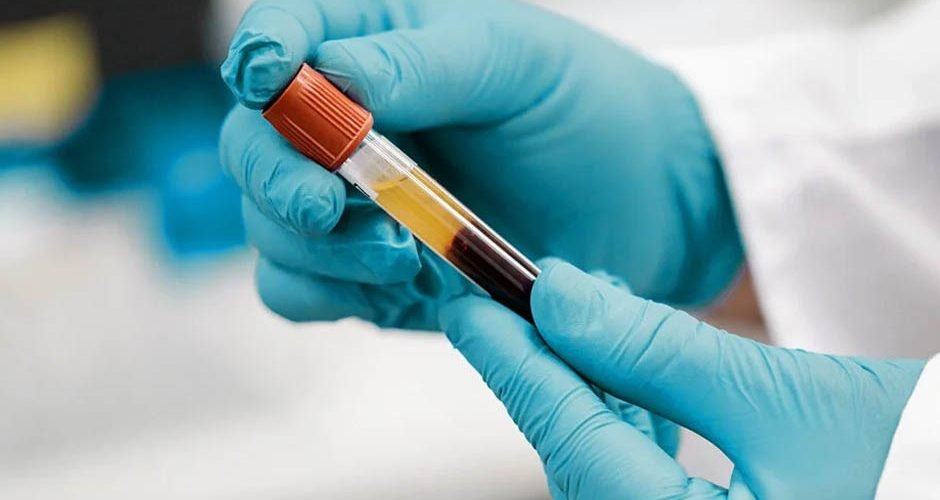If you’re looking for a reliable way to confirm your pregnancy, a blood test can provide accurate results. And the best part is that you can easily access a free blood pregnancy test clinic in your area. However, it’s important to understand the accuracy of blood tests for pregnancy detection to avoid any confusion or misinterpretation of the results. In this article, we’ll discuss what you need to know about the accuracy of blood tests for pregnancy detection and how to interpret the results to ensure you receive the best possible care.
Types of Blood Tests
There are two types of blood tests that can be used to detect pregnancy: qualitative and quantitative. Qualitative blood tests determine whether or not you are pregnant, while quantitative blood tests measure the amount of human chorionic gonadotropin (hCG) in your blood.
- Qualitative Blood Tests
Qualitative blood tests detect the presence of hCG, which is produced by the placenta after a fertilized egg implants in the uterus. These tests can be done as early as 10 days after conception and are usually performed in a laboratory. They are more accurate than home pregnancy tests and can detect pregnancy earlier.
However, the accuracy of qualitative blood tests depends on several factors. For example, if the test is done too early, hCG levels may not be high enough to detect. Additionally, some medical conditions, such as ectopic pregnancy or molar pregnancy, can cause false positive results.
- Quantitative Blood Tests
Quantitative blood tests measure the amount of hCG in your blood. They are more sensitive than qualitative blood tests and can detect pregnancy earlier. Additionally, these tests can track hCG levels over time, which is useful in monitoring the progress of pregnancy or detecting a miscarriage.
However, like qualitative blood tests, the accuracy of quantitative blood tests depends on several factors. For example, the timing of the test is crucial. If the test is done too early, hCG levels may not be high enough to detect, while waiting too long may result in hCG levels that are too high to accurately measure. Additionally, certain medical conditions, such as trophoblastic disease or ovarian cancer, can cause false positive results.
Factors That Affect Accuracy
The accuracy of blood tests for pregnancy detection can be affected by several factors. These include:
- Timing
The accuracy of blood tests for pregnancy detection depends on when the test is taken. Blood tests can detect pregnancy as early as six to eight days after ovulation, but for accurate results, it’s recommended to wait until after a missed period or at least two weeks after ovulation.
- Method of testing
Blood tests for pregnancy can be done in a laboratory or using a home pregnancy test kit. Laboratory tests are more accurate as they are conducted by trained professionals, while home test kits may have a higher margin of error due to user error.
- Pregnancy Complications
Certain medical conditions, such as ectopic pregnancy or molar pregnancy, can cause false positive results. Additionally, certain medications, such as fertility drugs or some cancer treatments, can affect hCG levels and interfere with the accuracy of the test.
- Human Error
Human error can also affect the accuracy of blood tests for pregnancy detection. For example, if the blood sample is mishandled or mislabeled, the test results may be inaccurate.
Tips to Improve the Accuracy of Blood Tests for Pregnancy Detection
Here are some tips to improve the accuracy of blood tests for pregnancy detection:
- To get the most accurate results, wait at least a week after your missed period before getting a blood test. This is because the hormone levels in your body may not be high enough to be detected in the blood until after your missed period.
- It’s important to follow any instructions provided by your healthcare provider or the testing facility. For example, some blood tests require fasting or avoiding certain medications before the test, so make sure to follow these instructions for accurate results.
- Choose a reliable and accredited facility that uses high-quality equipment and employs trained professionals to administer the test.
- In some cases, a blood test for pregnancy detection may produce a false negative or false positive result. If you have any doubts or concerns about your results, talk to your healthcare provider about follow-up testing to confirm your pregnancy status.
Blood tests for pregnancy detection are generally accurate and reliable. If you are unsure about the accuracy of your test results or have any concerns about your pregnancy, speak to your healthcare provider for additional testing and guidance.





